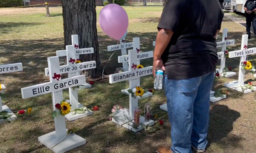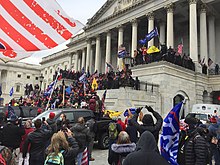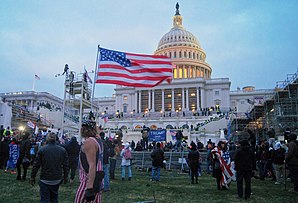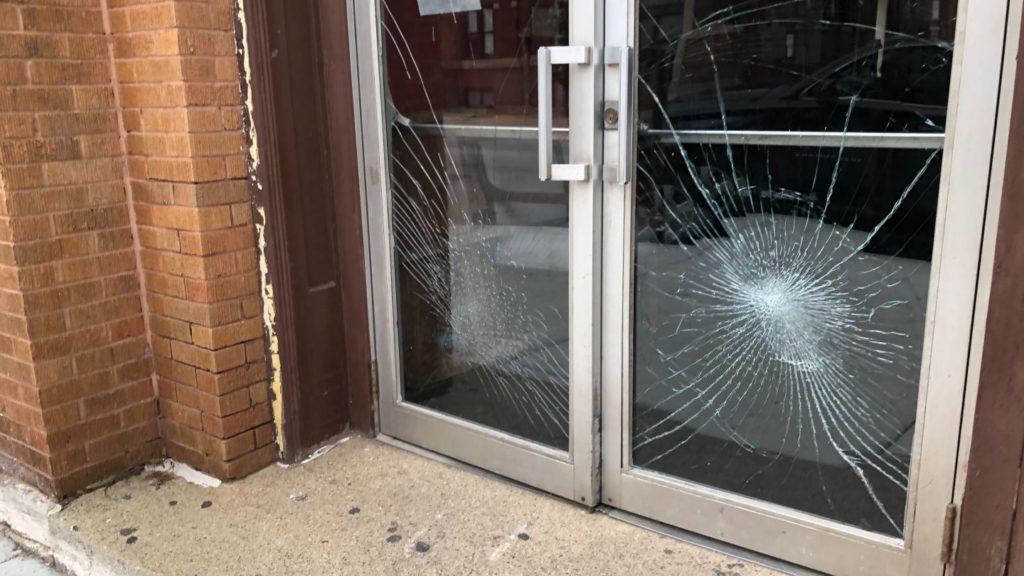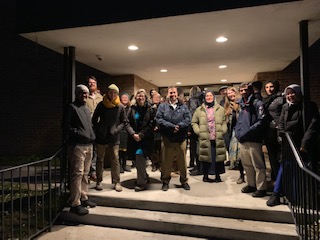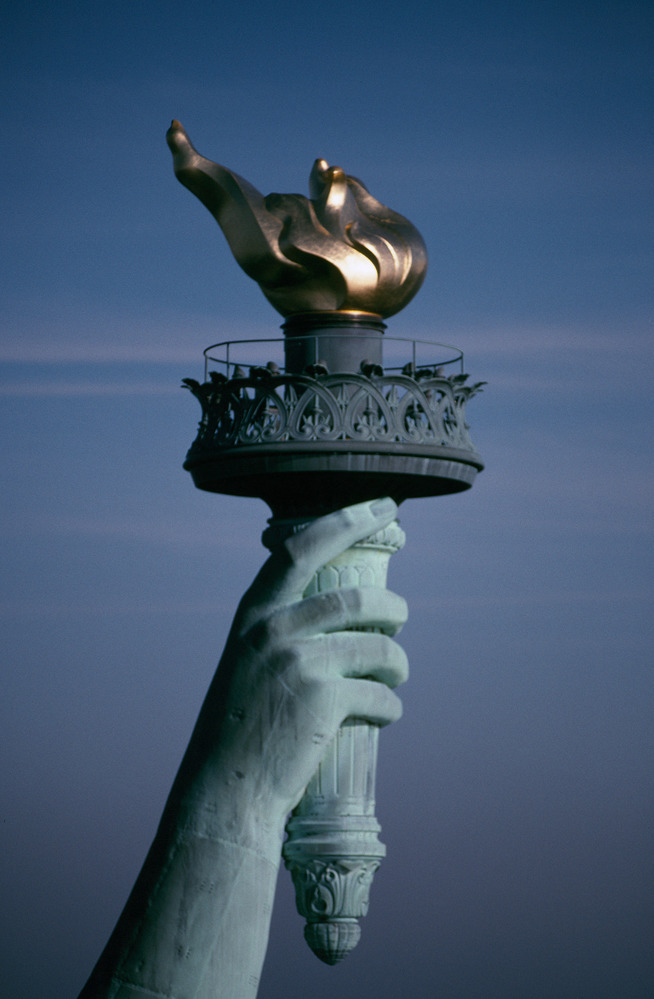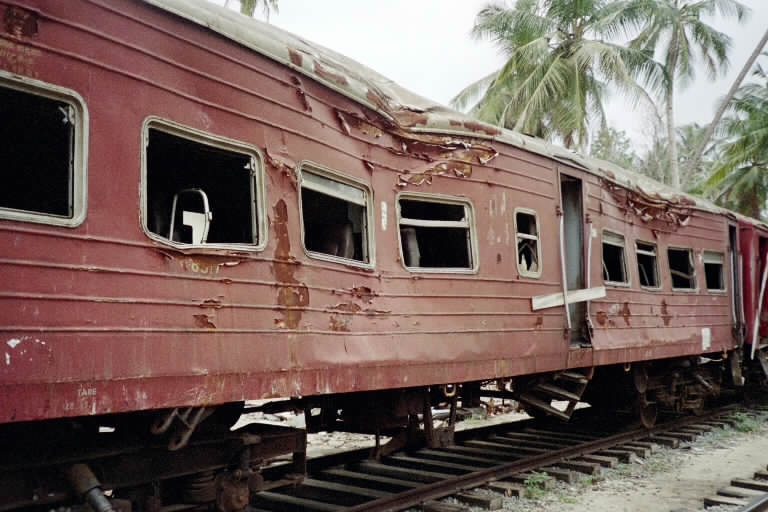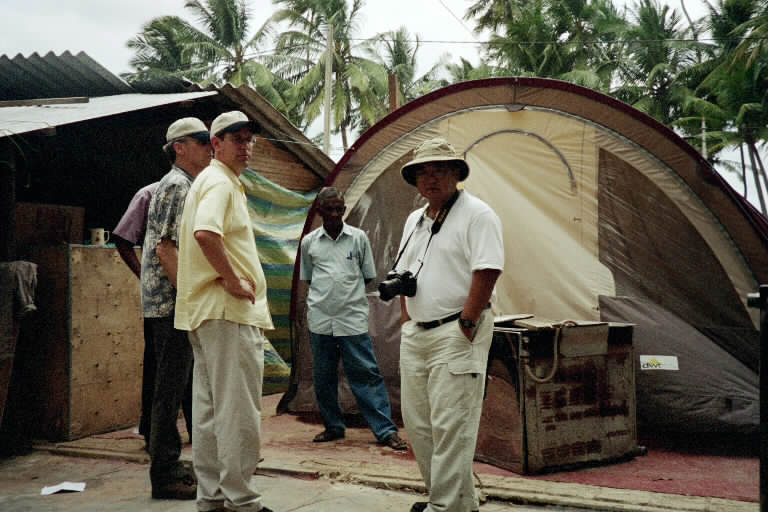When I first moved to Chicago, in November 1985, I came alone from Omaha. My wife, who grew up in Nebraska, chose to stay there until the fall semester was over. She was teaching across the river in the Council Bluffs, Iowa, public schools. I needed to settle in with my new job and find an apartment, after which we would move our belongings from Omaha. That happened in December. Jean house-sat for a carpenter friend in Omaha who vacationed in the winter until she too moved to Chicago in late January of 1986.
During those initial weeks, I stayed in a home owned by a widow in the Hyde Park neighborhood near the University of Chicago. She had a spare room to rent. We talked on a few nights as I got used to my new setting, and I learned she was Swiss but had emigrated from Czechoslovakia after World War II. She had married a Czech and was trapped with him in Prague after Hitler’s armies invaded Czechoslovakia.
In Switzerland, she presumably would have been safe. But one night, she told me, the Gestapo took her into custody because her failure to fly the Nazi flag outside their home raised suspicions. During the interrogation, they pulled out her fingernails, an absolutely excruciating torture intended to force her to reveal whatever they thought she knew about something or other, which she maintained was nothing. She simply had not flown a flag. Maybe it was a slow night for the German secret police in Prague. But the nightmare still haunted her in Chicago more than 40 years later. She seemed withdrawn and shy, telling me all this in a low but calm and insistent voice. Perhaps my willingness to listen, a trait developed as a journalist and interviewer, put her at ease about talking to me. I am not sure. It just happened.
After the war, and I don’t remember how, she found her way to the United States and was able to build a new life in Chicago. For her, this nation became a safe haven, an escape from terror.
The point of relating this brief story is that it made a huge impression on me. It made me acutely aware on a very personal level of how trauma shapes and distorts personality and lingers in the subconscious. I could not imagine reliving her experience. Just being a patient listener was deeply humbling. It is one thing to know of such horrors from a distance or from reading about them, quite another to sit across the kitchen table from a person who can share with you how she was subjected to them.
The world is still full of people experiencing such horrors even today. Certainly, the nightmare of the Russian invasion of Ukraine comes to mind, with all the trauma it will leave in its wake even if the Ukrainians succeed in defending their freedom from what clearly is now an insane regime in Moscow. There is also the war in Syria, the Taliban takeover of Afghanistan, Chinese oppression of the Uyghurs in Xinjiang, and the list goes on. Many in America have a profound tendency to compartmentalize, to choose categories, such as white Europeans, with whom we will sympathize, and to exclude from consideration Africans and Latin Americans, for instance, even though the reality of their own suffering is often no less traumatic.
This reality has in recent days become very clear in Chicago, which Texas Gov. Greg Abbott, in his remarkably callous fashion, added to his short list of Washington, D.C., and New York, as sanctuary cities to which he would dispatch unannounced busloads of migrants from the southern border with no preparation for their arrival, in order to protest federal border policy according to his own far-right vision of who belongs in America and who does not. In response, Chicago Mayor Lori Lightfoot has welcomed them and called for donations, but that alone will not solve the long-term problem.
With that in mind, a small volume atop a pile of book award submissions from five years ago kept calling to me. Busy with other work, I ignored it, but it would not go away. It sat there atop this small pile on the floor, perhaps getting more attention because I had not yet decided what to do with that pile. I was not ready to cull more books from my collection. That pile was a remnant from the last year I had served as a judge for the Society of Midland Authors book awards contest. It had not made the cut, and to be honest, I had scanned it at the time. There are too many submissions, and too little time, to read every book thoroughly. Each judge uses their own techniques to manage that problem, which can involve evaluating 70 to 100 books in some categories in a matter of two or three months. My approach was to scan the first 20 pages to see if the book absolutely captivated me, then to concentrate on thoroughly reading the smaller contingent that made the cut, so that I could give potential winners the attention they deserved. With three judges on each panel, we sometimes influenced each other, suggesting attention to something that one judge found particularly meritorious. It was a collaborative effort.
None of that means the books left behind did not merit attention. They simply did not make it to the final rounds. Think of it as a preliminary heat in an athletic competition.
 So it was with Human Rights and Wrongs, a 111-page collection of true stories by psychologist Adrianne Aron, who lives in Berkeley, California, and somewhat accidentally found her mission in life. She is a go-to expert for lawyers seeking to document asylum claims for immigrants who have suffered more trauma than most of us could handle. Sometimes, they can’t handle it either, but somehow, they made it to the U.S. and are seeking mercy and refuge, which is not always granted. To protect them, Aron does not use their real names, but she conveys very real stories with the flair of an aspiring fiction writer. If only what she relates were fiction. But these are real people, and she displays a unique and very human knack for finding ways to unravel the real story behind someone’s plea for asylum despite layers of fear, emotional numbness, and very often, cultural misunderstanding and language barriers.
So it was with Human Rights and Wrongs, a 111-page collection of true stories by psychologist Adrianne Aron, who lives in Berkeley, California, and somewhat accidentally found her mission in life. She is a go-to expert for lawyers seeking to document asylum claims for immigrants who have suffered more trauma than most of us could handle. Sometimes, they can’t handle it either, but somehow, they made it to the U.S. and are seeking mercy and refuge, which is not always granted. To protect them, Aron does not use their real names, but she conveys very real stories with the flair of an aspiring fiction writer. If only what she relates were fiction. But these are real people, and she displays a unique and very human knack for finding ways to unravel the real story behind someone’s plea for asylum despite layers of fear, emotional numbness, and very often, cultural misunderstanding and language barriers.
I will offer two examples. One involves a woman from El Salvador whose religious beliefs became the shield against reality that allowed her to avoid becoming detached from reality through post-traumatic stress. The other involves a Haitian man, arrested while defending himself from a drunken attacker, whose (mis)understanding of his rights in American courts was quite naturally molded by the rampantly unjust proceedings he had experienced in Haiti. Judges cannot (or should not) assume that asylum seekers see the world through the highly educated eyes of the social circles in which judges circulate. The need for a more diverse judiciary, in fact, stems in part from the frequent inability of privileged people to understand the world and experiences from which most refugees have emerged.
The Salvadoreña, whom Aron calls “Ms. Amaya,” was a simple mother from a rural community who had a story to tell, but her lawyers feared that, if she told it all, she would not be credible. Yet, not allowing her to tell her whole story would deprive her of the power to tell her own story as she knew it. It would continue the process of disempowering her that had begun in Central America when soldiers came to her house, accusing her of hiding arms of which she knew mothing. The soldiers took her to an army post, where she was gang-raped and tortured for four days before being released. She prayed to the Virgin Mary for salvation for her children’s sake and thanked her when it was over and she was still alive. As the detention wore on with other ordeals, she saw the hand of God in causing soldiers’ lit matches to go out when they threatened to set her on fire, and when their rifles misfired as she expected to be shot. But how could she know this was an intimidation tactic common in Latin America? It fell to Aron, the psychologist, to document the use of such tactics and to show that Ms. Amaya’s deep faith in divine intervention and mercy in fact protected her from the sort of deep psychological damage she might otherwise have suffered from confronting the reality of what was done to her. Religion gave her a belief structure that fit with her culture and afforded her some sense of divine protection.
Having helped make a successful case for Ms. Amaya’s grant of asylum, Aron also thought it wise not to mention in her brief that some of the oppressive tactics used by the Salvadoran military were actually consistent with those taught to visiting Latin American military officers by the U.S. School of the Americas. Challenging the judge’s world view might not have led to the best results for her client. Save that education for another day.
Louis Antoine was attacked by a drunk one day who stumbled into his path on the way out of a bar. As local police arrived, they saw him striking back. He ended up in the police car; the drunk walked away. Louis peed his pants from fear on the way to the station. After growing up in Haiti, being beaten by the Tonton Macoutes, the murderous gangsters who enforced the rule of dictator Jean-Claude Duvalier when he was a child and who had killed both his mother and father, he expected nothing but the worst when hustled into the back of a police car. One obstacle to retaining the political asylum granted him earlier was that he did not understand what he had pled to in court and, speaking Haitian Kreyol, did not understand the proceedings. Nor did he understand that the purpose of the French translator sitting with him was to help represent him because he spoke only Kreyol, not French. Why had he not asked for translation into a language he understood? It was not his experience that the defendant was allowed to understand. In Haiti, the French-speaking elite simply handed down decisions to the less fortunate masses. Simply put, he was unaware of rights in America that he had never experienced in Haiti. The psychologist’s job was to explain all this, based on the horrific injustices that Louis Antoine had experienced in Haiti. The man had shown the resourcefulness to save money and find his way to the United States, seeking a better life, so it was not emotional inhibition or trauma that held him back, but lack of knowledge of how the system worked. It fell to Aron to document his history and make clear where the American system had failed him until she helped reframe his case.
Underlying these and several other poignant stories is the fact that Aron’s techniques were not simply a matter of professional expertise, but of her very human willingness to listen, to find effective interpreters, and to probe deeply enough to make sense of it all and restore voice and agency to people who had mostly experienced distance and disempowerment from those who determined their fate. The American system has the potential to dispense real justice, but only when staffed and supported by people willing to invest the time and moral imagination to make it work.
For that very reason, although the book is now five years old, every story it tells retains a powerful relevance to current circumstances. We remain a nation that must rise above its petty prejudices to bestow mercy and live up to the very promises that brought Aron’s clients here in the first place.
Jim Schwab


